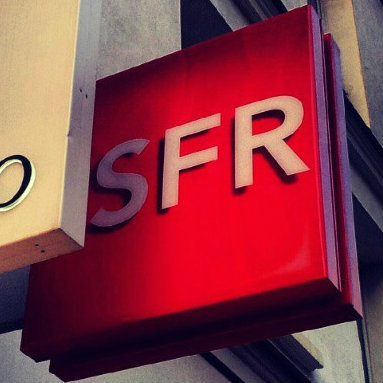Eurobites: SFR FTTH to Buy Covage for €1B
Also in today's EMEA regional roundup: Enreach buys Masvoz for UC expansion; French government raises the floor on 5G auction; Orange sells its Niger subsidiary.

Also in today's EMEA regional roundup: Enreach buys Masvoz for UC expansion; French government raises the floor on 5G auction; Orange sells its Niger subsidiary.
SFR FTTH, the French fiber wholesaler owned by Altice, is to acquire rival Covage for €1 billion (US$1.1 billion). SFR FTTH is the largest such wholesaler in France, with 1.7 million homes already passed with fiber and a further 3.7 million homes in the pipeline, while Covage is the fourth biggest, with around 800,000 homes already passed with fiber and a further 1.4 million in its sights. According to a statement announcing the acquisition, the merged company will focus on rolling out fiber in "exclusive areas," where no fiber network is currently available. The transaction is expected to close in the first half of 2020.
In other takeover news, Germany's Enreach is entering the Spanish unified communications market with the acquisition of Masvoz, a cloud services provider. The value of the deal, which is expected to complete by the end of the year, has not been disclosed.
The French government's finance ministry has set a "floor price" on its forthcoming 5G spectrum auction of €2.17 billion ($2.4 billion), Reuters reports, which is nearly €700 million more than the reserve previously recommended by the country's telecom regulator, Arcep. The regulator set the tortuous auction process in motion last week.
Orange has completed the sale of its Niger subsidiary to Zamani Com S.A.S., though the company's services will continue to be marketed under the Orange brand during a transition period. No financial details were disclosed.
Meanwhile, closer to home, Orange has crossed the Ts and dotted the Is on its network -sharing agreement with Proximus in Belgium. The shared network will be built by a new joint venture, owned 50/50 by Orange Belgium and Proximus and based in Brussels. Orange reckons the arrangement will save it €300 million ($337 million) over ten years. (See Eurobites: Orange, Proximus Agree to Network Sharing in Belgium.)
European Union member states have failed to agree on new rules intended to create a more level playing field between telcos and online players when it comes to "ePrivacy" issues. As Reuters reports, Friday's failure followed a familiar pattern, with disputes between member states on issues such as cookies tracking users' online activities having so far thwarted the European Commission's efforts to push through its proposals, which were introduced a couple of years ago.
BT has rebranded its Next Generation Text service -- which helps people with hearing and speech difficulties communicate over the phone -- as Relay UK. The service translates text to speech and vice versa with the help of a specially trained Relay Assistant based in one of BT's contact centers. The rebrand comes as a BT-commissioned poll found that only one in 20 of those who are deaf or have hearing loss can complete tasks over the phone, with 70% of the deaf community having to ask friends or family members for help with basic calls.
Uber, the smartphone-powered ride-hailing service, has had its license to operate in London withdrawn again. As the BBC reports, the UK capital's transport authority, TfL, said that Uber was not a "fit and proper" license holder. The company, which uses the services of around 45,000 drivers in the city, first lost its license in 2017 but was allowed to continue following the granting of two extensions. Uber can continue to operate while its legal appeal goes through the mill.
— Paul Rainford, Assistant Editor, Europe, Light Reading
Read more about:
EuropeAbout the Author(s)
You May Also Like




_International_Software_Products.jpeg?width=300&auto=webp&quality=80&disable=upscale)







